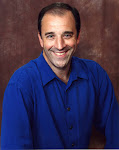
Fritz Haber changed our world. Does that surprise you? I'd never heard of Mr. Haber before, but he invented a process that many consider to be one of the greatest contributions to our modern world. He even won a Nobel Prize for it in 1918. He was the first to produce synthetic nitrogen. Big deal, you say? Yes, indeed! You see, synthetic nitrogen is the key to artificial fertilizers. Previously, farm animals were the only reliable source of natural fertilizer and that helped only so much. After Fritz, far more powerful fertilizer could be produced in abundance. It revolutionized agriculture. Food production skyrocketed allowing a huge swell in the world population. In fact, Mr. Vaclav Smil, in his book, Enriching the Earth, suggests that 2 out of 5 people on earth owe their existence to Mr. Haber. Well, I, for one, am grateful!
But before your new admiration for Mr. Haber goes too far, I think you should know the rest of the story. During World War I, Haber - he's a chemist, remember - worked enthusiastically to develop deadly chlorine gas for use in trench warfare and personally supervised it's first use. He was decorated and given the rank of Captain by the Kaiser. Not bad for a scientist! His wife, Clara, was also a chemist yet opposed his chemical warfare work. Suspiciously, she committed suicide following his involvement in using chlorine gas in the Battle of Ypres in 1915. His lab also developed Zyclon B, the deadly gas that the Nazis later used to kill thousands of Jews. Ironically, Haber was Jewish and, despite converting to Christianity, he was hounded out of Germany in 1933 because of his background. (Those ungrateful Nazis!) He bounced around a bit after that and died in 1934, in Basel, Switzerland.
So, what do you think of Fritz Haber now?
Man is a curious creature. He is capable of soaring deeds of greatness and despicable acts of evil. This is why it is so vital that gifted people have a conscious. Even the legacy of our modest lives ultimately depends on the orientation of our hearts, don't you think?

.jpg)

No comments:
Post a Comment